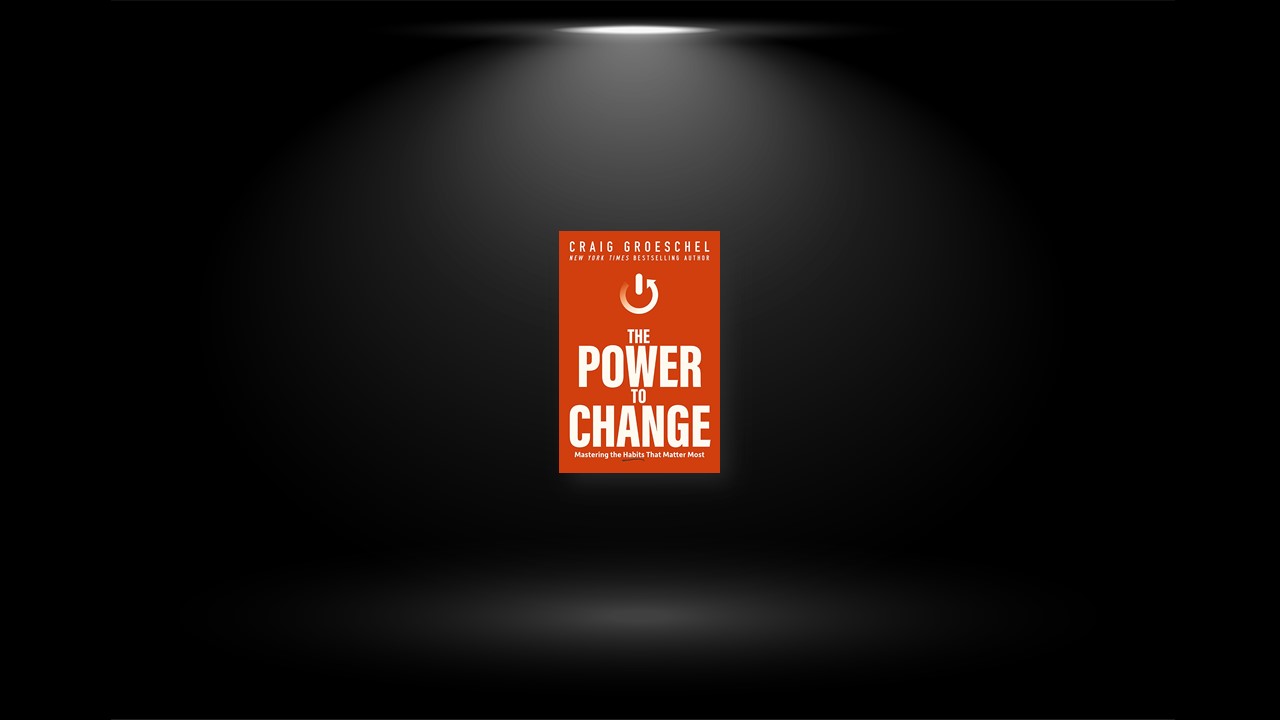Start with Who
Let’s say you smoke and decide to quit. You’re on a break at your job, and a coworker asks, “Want a cig?” What are you likely to say? “No thanks, I’m trying to quit.” What does that communicate? “I’m a smoker who is trying to do something else.” That change won’t last. It’s behavior modification, not based on identity transformation.
So what should you say? “No, thanks, I don’t smoke.” That could lead you to victory. Why? Because it starts with your identity. You’ve made it about who you are. Regardless of your past behavior, you are saying that you’re not a smoker. You are a new creation in Christ. A smoker is never who you truly were, and it’s definitely not who you truly are anymore. So you tell your coworker, “No, thanks, I don’t smoke,” and you tell yourself, Because my body is the temple of God.
That’s a who before do approach to change, and, with God’s help, it will work, allowing you to discover the change you’ve longed for but never experienced.
Trying versus Training
Here’s one more definition of training that should be helpful: training is doing today what you can do today so that you can do tomorrow what you can’t do today.
We know this: You don’t get an A in school by showing up for the final exam and trying hard. You get the good grade by committing to strategic habits (going to class, taking notes, studying) before the test. Those equip you to do the right thing (have the right answers) in the moment when you take the test. Day by day, you do what you can do today (go to class, study) so you can do tomorrow what you can’t do today (get an A on the test).
The starting gun fires. The runners take off. You didn’t train, but now in the race, you try really hard. Are you going to make it? No. Before long, you’ll be lying on the side of the road, throwing up and crying for your mommy.
Why? Because you tried really hard, but you did not train. The only way you’ll go from being out of shape to being able to run a marathon is by training. By committing to strategic habits before the marathon that equip you to run the marathon. By doing today what you can do today (maybe running a mile) so that you can do tomorrow what you can’t do today (maybe running a mile and a half). Keep practicing your strategic habits, and you will reach your goal of running a marathon. Trying tends to be a momentary reaction, while training is an ongoing action.
The Art of the Start
We tend to do not what’s best but what’s most obvious. The easiest thing to choose is what’s right in front of your face. So if you want to establish a new habit, make it obvious. The simplest and most powerful way to do this is visually. You’re going to set “action triggers.” To change what you do, you need to change what you see.
You want to drink more water? Put your gargantuan water bottle on the counter where you will see it every day. You want to eat more vegetables? Put those carrots in the front of the fridge so they’re the first thing you see when you open the door. You want your carrots greeting you in all their orange glory! You want to read the Bible every day? Put your Bible on your nightstand. Or choose a YouVersion Bible reading plan online and put the app on your home screen.
In their book Switch: How to Change Things When Change Is Hard, Chip Heath and Dan Heath share research on how important it is to “tweak the environment.” They write, “Many people have discovered that, when it comes to changing their own behavior, environmental tweaks beat self-control every time.” Environmental tweaks? They suggest using a smaller plate if you want to eat less, putting out your sneakers and exercise clothes the night before if you want to jog the next morning, and setting the coffeepot to auto brew at wake-up time so the aroma helps you fight the urge to hit snooze.
Amazing that such a simple effort could make so much of a difference.
How to Stop before You Flop
One reason we struggle to stop doing what we want to stop doing is timing. It’s the flip side of why we struggle to start new habits: Good habits are difficult to start because the pain comes now and the payoff is in the future. Bad habits are difficult to stop because the payoff comes now and the pain is in the future.
For example, let’s say you want to start jogging. You get excited, thinking, Yes! I am a jogger! I’m going to jog every day. I’ll get in great shape. I’ll lose weight! So the next morning your alarm goes off. Argh. It is so early! But you get up and put on your exercise clothes and sneakers. What am I doing up this early? You go outside and it’s cold! What the heck? Why is it so cold so early in the morning?
You start jogging, and before long, your legs hurt, your feet hurt, even your thumbs hurt. Why do my thumbs hurt? Everything hurts! You quickly went from excited to exhausted. After a few days of that, you check the scale. Wait. I’ve lost only one pound? How is that even possible? Is it worth it to do all this to lose just one pound?
Bad habits are difficult to stop because the payoff comes now and the pain is in the future. If you don’t stop, you will never feel free. You will never feel victory. You’ll continue to experience distractions and guilt that get in the way of intimacy with God and potentially get in the way of your relationship with your spouse or future spouse, kids, and others.
Stopping a habit now could prevent a secret from being exposed. If you don’t want people finding out, or if you don’t want to risk being embarrassed and ashamed or losing the respect of those you love, or if you don’t want to forfeit something you treasure, like a position or influence on people, all of that will happen—later. When it does, you’d do anything to go back and stop that habit now. Well, you are at now, now. You can stop now.
You Reap What You Sow
If you plant apple seeds, you get apple trees. If you plant orange seeds, don’t be deceived; don’t be stupid and expect apples. You can picture a farmer out in his fields: Wait. What’s this? I wanted apples. Why did I get oranges? It’s because you planted orange seeds! If you plant corn, you’re going to reap corn. Don’t plant corn if you want pineapples. That would be stupid. When you put a certain type of seed in the ground, you get a harvest that corresponds with the seed you planted.
Every. Single. Time. You reap what you sow. True in agriculture. True in life. If you plant good habits, you’ll get good outcomes. If you plant bad habits, don’t be deceived and expect good outcomes.
Wait. What’s this? I didn’t want this. Why is this happening? Because that’s what you planted. You fooled yourself into thinking you could plant one thing and reap another. Sounds crazy that someone might do that, but it happens all the time. A guy sows seeds of lust. He checks out girls at the gym, girls at his office, girls online. But he expects to have a good marriage. Then, when his marriage struggles, he’s confused. Wait. What’s this? It’s what you planted.
If you don’t like what you’re reaping, change what you’re sowing. If you don’t like the harvest, change the seed.
Here’s a divine assignment: Take an honest, prayerful look at the disappointing parts of your life. Ask God to help you search your heart. Then pinpoint the habits that have led to each aspect of your life that isn’t what you want. Avoid having a victim mentality or blaming others. That will not help. Take responsibility by identifying the habits you’ve sown that have led to your harvest. Then decide on a type of seed you will consistently plant to get a better harvest.


